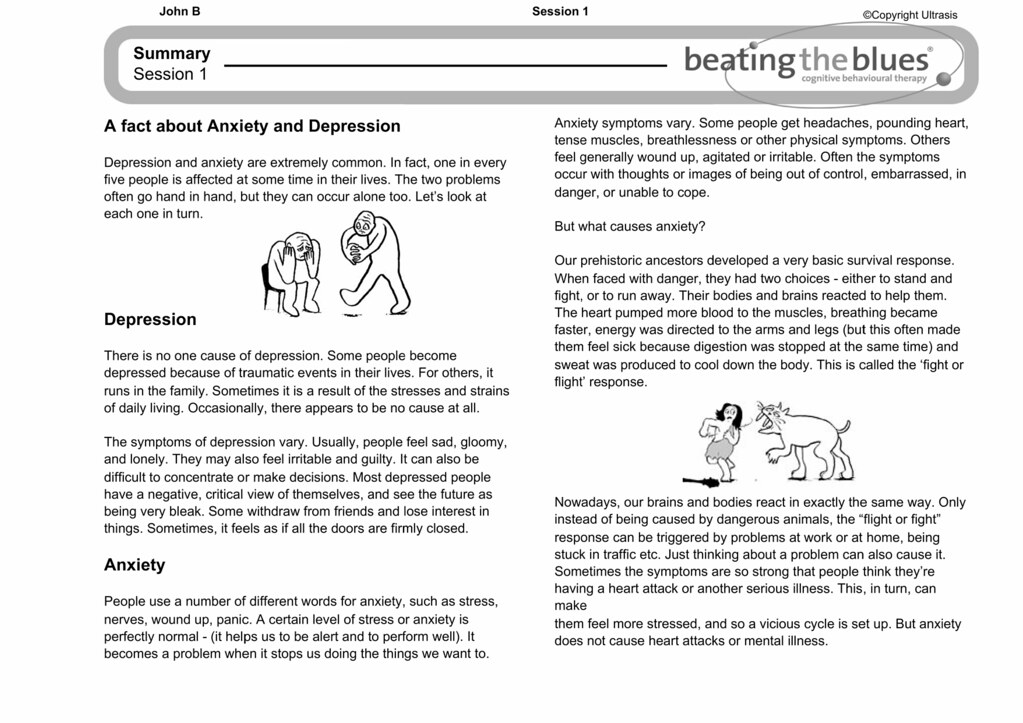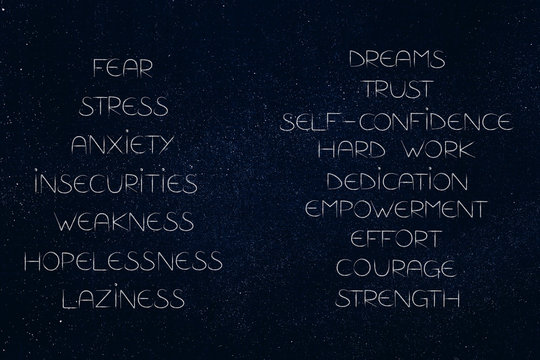Have you ever felt like you don’t quite fit in? Like your quirks and idiosyncrasies make you stand out in a way that’s uncomfortable or even embarrassing? If so, you’re not alone. In fact, feeling like you’re weird or different from others is a common experience. But why does this happen? And is there anything we can do about it? we’ll explore these questions and more, drawing insights from the world of therapy to help shed light on why feeling “I’m weird” is actually more normal than you might think. So if you’ve ever felt like an outsider, keep reading – this one’s for you.
Understanding the Common Experience of Feeling “I’m Weird”
Feeling “I’m Weird” is a common experience that many people go through at some point in their lives. It’s that feeling of not quite fitting in, of being different from those around you. This can be due to a variety of factors, such as personality traits, interests, or experiences. However, it’s important to remember that feeling this way is completely normal and nothing to be ashamed of. In fact, embracing your uniqueness can lead to greater self-acceptance and confidence. It’s important to recognize that everyone has their own quirks and idiosyncrasies, and these are what make us who we are. In therapy, clients can explore these feelings of being “weird” and learn to reframe them in a more positive light.
The Stigma Surrounding Being Different and How Therapy Can Help
Stigma Surrounding Being Different and How Therapy Can Help
Feeling like you don’t fit in or being labeled as “weird” can be difficult to handle. Society often creates stigmas around those who are different, leading to feelings of shame and isolation. This can be especially challenging for individuals who have not yet found a supportive community where they feel accepted.
Therapy offers a safe space to explore these feelings and work towards self-acceptance. A therapist can help challenge negative thoughts that may arise from societal expectations and provide tools for coping with the discomfort of feeling like an outsider.
It’s important to remember that everyone has unique qualities, even if they aren’t celebrated by mainstream society. Through therapy, individuals can learn how to embrace their differences and find confidence in their own skin. By breaking down the barriers created by stigma, therapy offers the opportunity for personal growth and increased well-being.

The Importance of Embracing Your Unique Qualities in Therapy
Embracing Your Unique Qualities is a key aspect of therapy for those who feel “I’m weird.” Instead of trying to fit into societal norms, therapy encourages individuals to explore and celebrate their differences. This can involve identifying strengths and interests that set them apart from others and finding ways to express those qualities in a positive way. Therapists may also work with clients to challenge negative beliefs about themselves and their differences, helping them to see the value in being unique. By embracing their individuality, clients can build self-confidence and self-acceptance, leading to a more fulfilling life.
How to Overcome Negative Self-Talk About Being “Weird”
Understanding the Psychology Behind Feeling “Weird”
Feeling “weird” is a common experience, but it can also be a source of negative self-talk and self-doubt. It’s important to understand that this feeling often stems from a fear of rejection or not fitting in with societal norms. This fear can be rooted in childhood experiences or social conditioning. In therapy, we explore these underlying beliefs and work to challenge them. By reframing our thoughts and focusing on our unique qualities, we can begin to shift our perspective and build self-acceptance. With time and practice, we can learn to embrace our differences and celebrate what makes us special.
Challenging Negative Self-Talk: The Power of Reframing
One of the most effective techniques for overcoming negative self-talk about feeling “weird” is reframing. This involves intentionally changing the way you think about yourself and your differences. Rather than focusing on the negative aspects of being different, try to highlight the positive qualities that set you apart from others. For example, instead of thinking “I’m weird because I don’t fit in with everyone else,” reframe it as “I’m unique and have a special perspective on things.” By actively challenging negative self-talk and shifting your mindset towards self-acceptance, you can begin to embrace your individuality rather than view it as a flaw.
Building Self-Acceptance and Confidence in Therapy
In therapy, individuals can learn to challenge their negative self-talk and develop an understanding of how their unique qualities make them valuable. Cognitive-behavioral techniques such as cognitive restructuring can help clients identify and reframe unhelpful thought patterns about themselves. Mindfulness practices can also be effective in cultivating self-acceptance and reducing self-judgment. Additionally, therapists may encourage individuals to focus on building confidence through goal-setting and practicing assertiveness skills. By working on accepting oneself and recognizing one’s strengths, those who feel “weird” can shift toward a more positive mindset that celebrates individuality rather than fearing it.
Embracing Uniqueness: Celebrating What Makes You Different
It’s important to recognize that being different is not a bad thing. In fact, it’s what makes you unique and special. When negative self-talk creeps in and you start to feel like you’re “weird,” try reframing those thoughts. Instead of focusing on the negative, focus on the positive aspects of your uniqueness. Celebrate what makes you different and embrace your individuality. Remember that everyone has their own quirks and idiosyncrasies, and that’s what makes us all interesting and diverse. By embracing your uniqueness, you can build confidence and self-acceptance, which can help combat negative self-talk and feelings of being an outsider.

Recognizing the Benefits of Being Different in Society
Benefits of Being Different in Society
While society often values conformity, there are many benefits to being different. Diversity brings new perspectives and ideas that can lead to innovation and growth. When we embrace our unique qualities, we become more authentic and true to ourselves, which can increase self-esteem and reduce anxiety. Being different also allows us to make connections with others who share similar experiences or interests. Additionally, embracing diversity leads to a more inclusive society where everyone is valued for who they are rather than fitting into a narrow mold of what’s considered “normal.” By celebrating our differences, we can help create a world that is rich in cultural exchange and mutual respect.

The Role of Childhood Experiences in Feeling Like an Outsider
Childhood Experiences can play a significant role in feeling like an outsider or different from others. Perhaps you were teased as a child for your interests or hobbies, or maybe you struggled with fitting in socially. These experiences can stick with us and contribute to feelings of “I’m weird” later in life.
Additionally, family dynamics and upbringing can also shape our sense of self and unique qualities. If we grew up in an environment where being different was not valued or accepted, it’s understandable that we may struggle with self-acceptance as adults.
In therapy sessions, exploring these past experiences and how they have influenced our beliefs about ourselves is crucial for understanding why we feel the way we do. This process can help individuals begin to challenge negative thought patterns and develop more compassionate perspectives towards themselves. With time and patience, it’s possible to move beyond the constraints of childhood conditioning and find acceptance for who we truly are today.

Techniques for Building Self-Acceptance and Confidence in Therapy
Challenging Negative Thoughts and Embracing Your Uniqueness
It’s common to have negative thoughts about being “weird” or different, but therapy can help challenge these beliefs. An important technique is to identify and question the validity of these thoughts. Are they based on evidence or just assumptions? It’s also helpful to recognize the strengths and positive qualities that come with being unique. Embrace your individuality and appreciate what makes you stand out from others. This can lead to increased self-acceptance and confidence. Through therapy, clients can learn techniques for reframing negative self-talk into more positive and empowering affirmations.
Practicing Mindfulness to Cultivate a Positive Self-Image
Practicing mindfulness can help individuals with im weird feelings cultivate a positive self-image. By focusing on the present moment and acknowledging one’s thoughts and emotions without judgment, it becomes easier to recognize negative self-talk about being different. Mindfulness techniques such as breathing exercises, body scans, and meditation can also reduce anxiety and stress related to feeling like an outsider. Through regular practice, mindfulness can bring greater self-awareness and acceptance of one’s unique qualities. This can lead to increased confidence in social situations and a willingness to explore new experiences without fear of judgment or rejection.
Building Lasting Strategies for Self-Acceptance in Everyday Life
One of the main goals of therapy is to help individuals build lasting strategies for self-acceptance in everyday life. This involves identifying and challenging negative self-talk, practicing self-compassion, and developing a strong sense of personal values and beliefs. Mindfulness techniques can also be helpful in increasing awareness of one’s thoughts and emotions without judgment. Additionally, setting achievable goals and celebrating small successes can boost confidence and reinforce a positive self-image. It’s important to remember that building self-acceptance is a process that takes time and effort, but with the right tools and support, it is possible to overcome feelings of “I’m weird” and embrace one’s unique qualities.
Finding Connection with Others Who Share Similar Experiences
Connecting with others who share similar experiences is an important aspect of overcoming the feeling of being “weird.” Support groups or therapy sessions with individuals who have gone through similar struggles can help you feel less alone and provide a safe space to discuss your feelings. It’s also important to seek out social activities where you can connect with like-minded people who appreciate your unique qualities. This might include joining clubs, attending events, or volunteering for causes that align with your interests. By surrounding yourself with others who value diversity and individuality, you’ll begin to see that there are many different types of people in the world, and what makes you “weird” is actually what makes you special.

Celebrating Your Uniqueness: Moving Beyond “I’m Weird” to “I’m Special”
One of the biggest steps in moving beyond feeling “I’m weird” is celebrating your uniqueness. Finding pride in what makes you different from others can be incredibly empowering and help build self-confidence. This can involve taking the time to explore your interests, hobbies, and talents that make you stand out from others. Embracing these qualities can also improve relationships as it allows others to see the real you.
Additionally, finding a community of people who share similar experiences can be a great way to celebrate and normalize being different. Whether it’s joining a social group or connecting with individuals online, having that sense of belonging can help alleviate feelings of isolation and lead to more positive self-talk.
Remember that everyone has something unique about them, and embracing those differences is what makes us special as individuals. So instead of saying “I’m weird,” try reframing it as “I’m special.” Celebrate yourself for who you are!
feeling “I’m weird” is a common experience that many people face in their lives. However, therapy can provide valuable insights and support to help individuals navigate this complex emotion. By understanding the stigma surrounding being different and embracing unique qualities, individuals can overcome negative self-talk and build self-acceptance and confidence. Childhood experiences often play a role in feeling like an outsider, but finding connection with others who share similar experiences can lead to a sense of belonging. Ultimately, celebrating one’s uniqueness can move us beyond “I’m weird” to “I’m special.” Through therapy, we can learn to embrace our differences and find meaning in our individuality.
